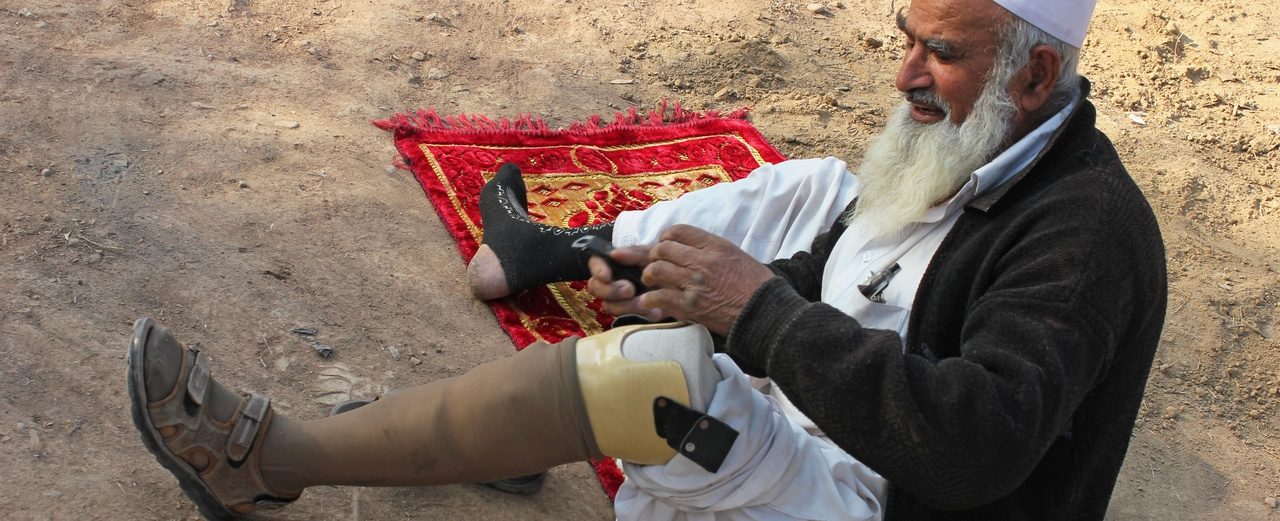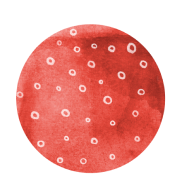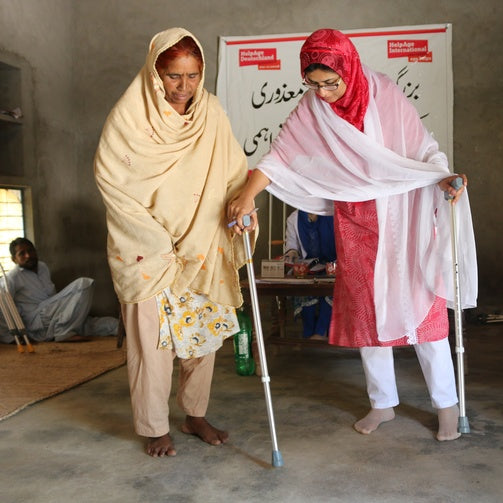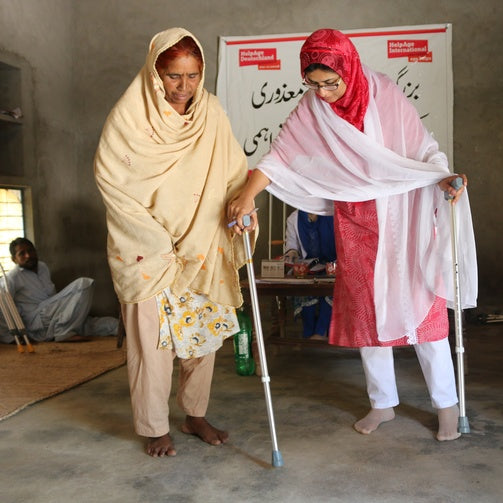Day 22
Fitting a prosthesis for an elderly person in Pakistan
 Living life independently again Living life independently again
Living life independently again Living life independently again


Walking aids for the elderly in Pakistan

need
Walking aids and prostheses for elderly people with disabilities in the Peshawar region.
activity
Purchase and adaptation of walking aids (leg prostheses, walking sticks, wheelchairs) and training for older people.
Measurable performance
Number of leg prostheses, walking aids and wheelchairs and rehabilitation for older people with physical disabilities.
Result
The people can walk again and regain their independence.
Systemically relevant impact
The health of older people in Peshawar is sustainably improved and the older generation can continue to participate actively in society.
background


The good deed
AboutPakistan
Islamabad
Capital city
190,000,000
Population
5.311
Gross domestic product
per capita per year
Rank 150 of 189
Human Development Index
(Human Development Index)



